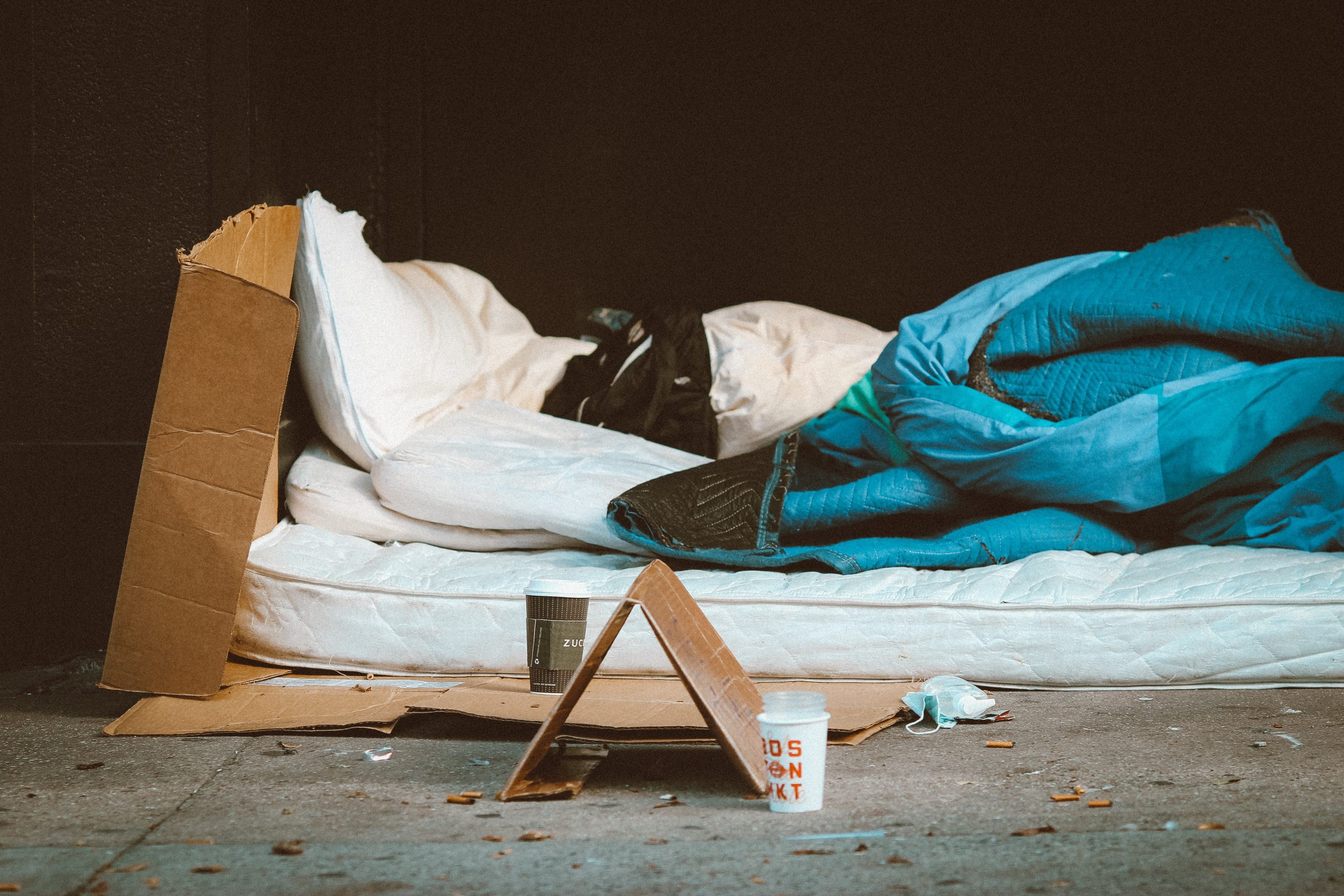
Chris Lange, FISM News
[elfsight_social_share_buttons id=”1″]
The city of Denver will allocate $2 million in unused American Rescue Act funds to offer a select group of its homeless citizens up to $12,000 in cash assistance annually as part of a “basic income” pilot program.
Among the city’s growing homeless population — currently estimated to number nearly 7,000 — 140 individuals can take advantage of the taxpayer-funded windfall, with one catch: they must be female, transgender, or identify as “non-binary.”
Denver’s City Council has approved a $2 million contract with the Denver Basic Income Project to implement the program and hopes that charitable donations will enable them to expand cash assistance to another 800 qualifying homeless people.
Under the contract, members of the homeless community who use the city’s shelter system and meet the qualification requirements of the so-called “no strings attached” handout can receive up to $1,000 per month for a year.
“We are proud to offer direct cash assistance that will help more than 140 Denver women and families currently in shelters move into stable housing, and provide support so they can stay housed, while opening space in our shelters to serve more people,” the city’s Democratic Mayor Michael B. Hancock said in a tweet.
Funding for the contract, which also includes free phones for each candidate, was allocated from unused American Rescue Plan monies originally intended to help businesses and workers recover from the COVID-19 pandemic through stimulus checks and federally funded small business loans.
Funneling money for the stipends through the non-governmental, not-for-profit Denver Basic Income Project allows the city to bypass federal requirements barring discrimination in the distribution of funds from government benefit programs.
Critics say the cash handouts fail to address issues that have fueled growing homelessness in major cities throughout the U.S., including mental illness and addiction.
“To solve homelessness in CO we need real, compassionate solutions driven by results,” Colorado GOP Chairwoman Kristi Burton Brown said in a tweet. “Temporary band-aids with no strings attached — like the Denver City Council’s $2M handout won’t help,” she added.
Another foreseeable problem lies in how the city will determine whether a homeless person meets the “trans” and “non-binary” qualifications for cash assistance — a factor HotAir Weekend Editor Jazz Shaw predicts will soon result in a major headache for the city.
As to the limits on who will qualify for the program, there are other issues. It should be fairly easy to identify which of the homeless applicants are women (assuming they have a biologist on the team, of course) but how do they plan to pick out the transgender and ‘nonbinary’ applicants? Once the word gets out on the street that those are the required demographics to get your hands on that kind of cash, every male homeless person is going to show up claiming that they ‘identify’ as a woman now. How will the screeners prove them wrong? Wouldn’t it be either transphobic or homophobic or some other form of phobia to even question them about it?
“As excited as we are about it, this isn’t something you can call in and apply for,” Angie Nelson, deputy director of the city’s Homelessness Resolution Fund, admitted to Axios.
Denver isn’t the first Democratic-led city to establish wealth-distribution programs using American Rescue Act funds.
Los Angeles’ launched its basic income plan in August, through which 1,000 residents will receive $1,000 a month for three years.
Chicago will hand out more than $30 million to 5,000 low-income residents who will receive $500 monthly for a year in an effort to address “wealth inequality,” according to The University of Chicago’s Inclusive Economy Lab Director Carmelo Barbero. The group was hired by Mayor Lori Lightfoot to study the effects of the program.
Denver’s program will be evaluated by the University of Denver’s Center for Housing and Homelessness Research through a randomized control trial. The analysis will measure housing outcomes, utilization of shelter and other homeless services, and improvements in psychological health and substance use for those who opt-in.
This article was partially informed by Daily Wire, Fox News, The Chicago Tribune, Axios Denver, and University of Chicago News reports.
